EC bans all kinds of tobacco in polling booths during 2019 elections
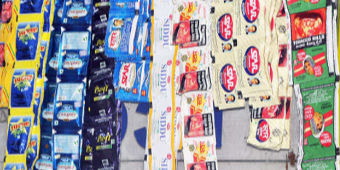
The Election Commission has banned all kinds of tobacco in polling booths during next year's general elections, a bid to effectively implement tobacco control laws in the country. The Commission has asked all states and UTs to issue instructions to district electoral officers-cum-district magistrates to ensure prohibition of not just smoking, but also the use of chewable tobacco in all polling booths.
As per the guidelines, each polling booth will have a banner put up, saying the same.
The presiding officer of each polling booth will be nominated as nodal officer for ensuring tobacco-free status at their booths.
All district tobacco control cells will supervise and monitor this campaign to sensitise people on ill effects of tobacco.
The move comes after Delhi government's Health Department approached the Commission seeking declaration of all polling stations as tobacco-free zones rather than just declaring them as smoke-free as it used to be in previous elections.
In a letter, Additional Director (Health) Dr S K Arora had stated that tobacco use is the single largest preventable cause of disease, disability and pre-mature death and major threat to the present and future health of any population.
"On election day, majority of adult population of our country is likely to visit polling booth to caste its vote. This will be an excellent opportunity to sensitise among majority adult population on a single day through displayed multi-colour banners with message on ill-effects of tobacco at polling booth," he had said.
- 1
- Leave a comment
Eyes may be a signal of your mental stress level
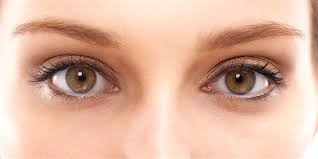
With demands of work productivity shooting up stress levels, researchers have discovered that a person’s eyes may offer a solution.
The study showed that the pupil dilation - widening of the pupils of the eyes - could be used to indicate levels of stress of a person.
Many people are multi-tasking but there is no measurement for someone’s mental well-being. However, we found that the size of a pupil could be the key to measuring
someone’s mental state while they multitask,” said an Assistant Professor from the University of Missouri in the US.
To understand, the researchers used a simulated oil and gas refinery plant control room where they watched, through the motion-capture and eye-tracking technology, as
the participants reacted to unexpected changes, such as alarms.
During the scenario’s simple tasks, the participants’ eye searching behaviours were more predictable. Yet, as the tasks became more complex and unexpected changes
occurred, their eye behaviour became more erratic, the findings revealed.
The team hopes that this can give a better insight into how systems should be designed to avoid mentally overloading workers and build a safer working environment.
Negative social media experiences linked to depression
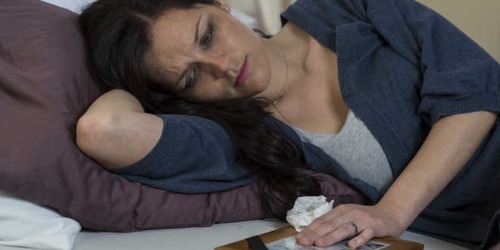
Washington :
Negative experiences on social media are strongly associated with higher depressive symptoms among young adults, according to a study.
The finding, published in the journal Depression and Anxiety, may be useful for designing interventions and clinical recommendations to reduce the risk of depression.
“We found that positive experiences on social media were not related or only very slightly linked to lower depressive symptoms. However, negative experiences were strongly and consistently associated with higher depressive symptoms,” said Brian Primack from the University of Pittsburgh in the US.
“Our findings may encourage people to pay closer attention to their online exchanges. Moving forward, these results could assist scientists in developing ways to intervene and counter the negative effects while strengthening the positive ones,” said Primack.
Researchers surveyed 1,179 full-time students aged 18 to 30 at the University of West Virginia in the US about their social media use and experiences. The participants also completed a questionnaire to assess their depressive symptoms.
Each 10 per cent increase in positive experiences on social media was associated with a 4 per cent decrease in odds of depressive symptoms, but those results were not statistically significant, meaning that the finding could be due to random chance.
However, each 10 per cent increase in negative experiences was associated with a 20 per cent increase in the odds of depressive symptoms, a statistically significant finding.
“It is valuable to know that positive and negative experiences are very differently related to depression,” said Primack.
“But we don’t know from our study whether the negative social media interactions actually caused the depressive symptoms or whether depressed individuals are more likely to seek out negative online interactions,” he said.
Other characteristics also were linked to the participants having depressive symptoms. For example, compared with men, women had 50 per cent higher odds of having depressive symptoms, researchers said.
Identifying as non-white and having only completed “some college”, rather than completing a degree, also were associated with higher odds of depressive symptoms, they said.
Drink coffee for better and efficient teamwork
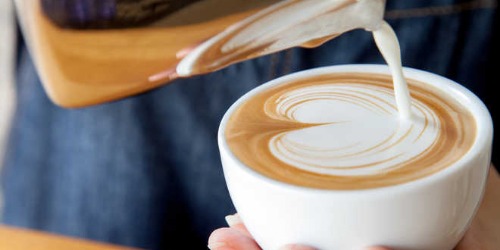
New York :
Finding it hard to make your team together? A cup of coffee may work as magic and help people remain more alert as well as work together as a team, say researchers including one of an Indian-origin.
According to the research, people who drank coffee beforehand, gave more positive reviews for their group's performance on a task and their own contribution.
Coffee seems to work its magic in teams by making people more alert, said Amit Singh, from The Ohio State University.
"Not surprisingly, people who drank caffeinated coffee tended to be more alert. We found that increased alertness was what led to the positive results for team performance," Singh said.
The results were based on twin studies, published in the Journal of Psychopharmacology, involving over 100 students.
The first study involved undergraduate students who took part in a coffee tasting task. While half of them were asked to drink a cup of coffee and rate its flavour at the beginning, the other half did this at the end of the experiment.
Those who drank coffee before the discussion rated themselves and their fellow team members more positively than those who drank coffee after the discussion, Singh said.
In the second study, students drank coffee at the beginning of the study, of them, half drank decaf and the others drank caffeinated brew.
Those who drank the caffeinated coffee rated themselves as more alert than those who drank decaf. They also rated themselves and their fellow group members more positively than others.
This suggested that any intervention that increases alertness (such as exercise) may also produce similar results.
People who drank caffeinated coffee were more likely than those who drank decaf to say they would be willing to work with their group again.
Further, people were found to talk more after drinking caffeine, but they also tended to stay more on topic.
New blood test to detect liver damage in minutes
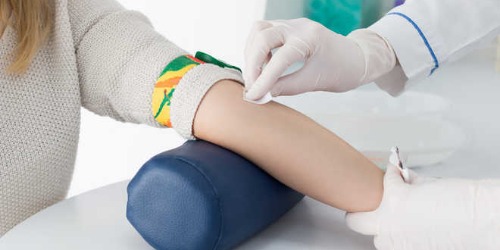
London :
Scientists have developed a quick and robust blood test that can detect liver damage before the symptoms appear.
The test developed by researchers from the University College London in the UK could address a huge need for early detection of liver disease.
It distinguishes between samples taken from healthy individuals and those with varying degrees of liver damage, researchers said.
The study, published in the journal Advanced Materials, describes the new method of detecting liver fibrosis, the first stage of liver scarring that leads to fatal liver disease if left unchecked, from a blood sample in 30-45 minutes.
"We hope that our new test could be used on a routine basis in GP surgeries and hospital clinics to screen people who face an elevated risk of liver disease, but don't yet show signs of liver damage to identify those with serious fibrosis, so that they can access treatment before it's too late," said William Rosenberg, a professor at UCL.
"This may open the door to a cost-effective regular screening programme thanks to its simplicity, low cost and robustness," he said.
Researchers at the University of Massachusetts in the US designed a sensor that uses large molecules called polymers, coated with fluorescent dyes that bind to blood proteins based on their chemical properties.
The fluorescent dyes change in brightness and colour, yielding a different pattern of fluorescence depending on the protein composition of the blood sample.
The team at UCL tested the sensor by comparing results from small blood samples (equivalent to finger-prick checks) from 65 people, in three balanced groups of healthy patients and those with early-stage and late-stage fibrosis.
They found that the sensor could identify different patterns of protein levels in the blood serum of people in the three groups.
"By comparing the different samples, the sensor array identified a 'fingerprint' of liver damage," said William Peveler, who completed the research at UCL.
"This method is known as a chemical nose, as it can recognise the difference between healthy and unhealthy blood samples without relying on known disease markers," said Peveler.


